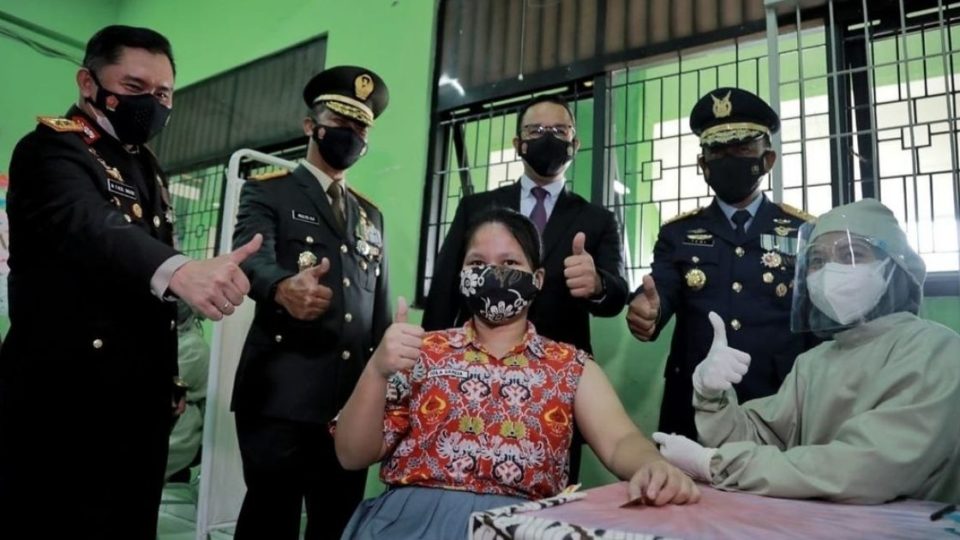Jakarta Governor Anies Baswedan kicked off the COVID-19 vaccination program for children aged 12-17 at state high school SMAN 20 in Sawah Besar, Central Jakarta earlier today.
View this post on Instagram
“Today is a historic day for Indonesian children, especially in Jakarta. After one-and-a-half years of our children having to conduct remote learning, unable to do activities with their friends at their school freely, today, on July 1, 2021, children in Jakarta are starting to get vaccinated,” Anies said in his speech.
Anies said the jabs for children will be carried out in other schools throughout Jakarta. He hoped that coronavirus transmission on children can be suppressed through vaccination, and advised parents to have their children inoculated as a way to protect them from the viral disease.
This vaccination scheme uses CoronaVac, which is developed by Chinese pharmaceutical firm Sinovac. The program commenced following the issuance of Emergency Use Authorization (EUA) by Indonesia’s Food and Drugs Monitoring Agency (BPOM) for the administration of the Sinovac vaccine for children aged 12-17.
Also Read — BPOM recommends Sinovac jabs for kids as young as 12
The Health Ministry has issued a circular regarding the program, which states that children in that age range may get their COVID-19 jabs at health facilities or schools, madrasah (Islamic school), and pesantren (Islamic boarding school) and that they will get the same health screenings and observation procedures as adults. Participants are also required to bring their family registration card (KK) or other documents that include their ID number, among other requirements.
Susanto, who heads the Commission for the Protection of Indonesian Children (KPAI), said that more than 266,000 Indonesian children aged 18 and below have been infected with the coronavirus, making up 12.6 percent of the national count, citing data from the National COVID-19 Task Force per June 22. Of those, 237,000 children have recovered from the disease.
Susanto said the majority of children contracted COVID-19 from their infected family members, their immediate social environment, and crowded places.
“Children are also exposed to the crowds when they are taken outside along with their families, and due to a lack of adherence to health protocols,” Susanto said.
He added that many parents have been reluctant to consult with health service providers, which led to the delay of their children’s health rights.
Also Read:
Foreign nationals can get the COVID-19 vaccine in Indonesia. Here are the requirements
Indonesia hopeful 70 percent of population would receive first jab by the end of 2021
Jab and fly: Garuda Indonesia launches COVID-19 vaccination scheme for passengers




